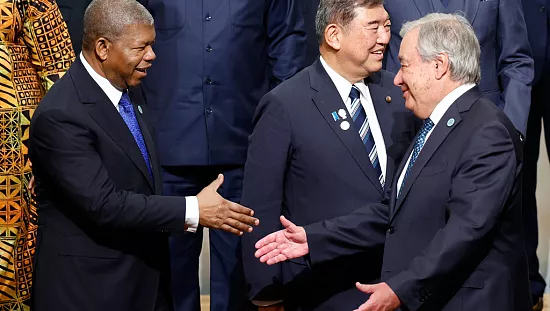
Senegal’s economic future hangs in the balance as Finance Minister Cheikh Diba leads an official delegation to Washington to engage in critical talks with the International Monetary Fund (IMF).
The discussions, scheduled from October 13 to 18, 2025, are seen as a decisive step in addressing the country’s mounting financial troubles, which have led to a suspension of IMF aid and a severe budgetary crisis.
The Senegalese delegation, often referred to as the “Dream Team” by local media, consists of key government officials tasked with negotiating a new financing agreement. Their presence coincides with the annual meetings of the IMF and World Bank, providing a timely opportunity for high-level talks on the country’s economic stability.
The crisis facing Senegal is rooted in a series of troubling revelations about the government’s handling of public finances.
A report by the IMF and the Court of Auditors revealed nearly $7 billion in unreported debt between 2019 and 2024, a discovery that has sparked a breakdown in trust between Dakar and its international partners. As a result, the IMF suspended its disbursements, including a €1.8 billion aid program, after discovering “significant misrepresentations” in Senegal’s financial data.
Senegal’s budget deficit has skyrocketed to 14% of GDP, while public debt stands at an unsustainable 119% of GDP.
The new government, led by Prime Minister Ousmane Sonko, faces the daunting task of restoring fiscal discipline and credibility.
According to the IMF, while the new administration’s efforts to improve transparency are commendable, it must follow through with concrete fiscal reforms to regain the trust of international financiers.
In her recent remarks, IMF Managing Director Kristalina Georgieva expressed cautious optimism about the ongoing negotiations, stating, “The IMF is ready to act quickly, provided the necessary commitments are made.”
However, she also emphasized that any future financial support would be contingent on Senegal’s ability to restore rigorous control over public finances.
The controversy over the “hidden debt” scandal has fueled tensions between the current government and the previous administration of former President Macky Sall. While the new government asserts that several direct payments abroad were not included in official accounting, Sall has vehemently denied the accusations, calling the idea of “hidden debt” “nonsense” in his new book, Africa at the Heart.
The political fallout from this crisis is significant. While the new government has pushed for greater fiscal transparency and accountability, many critics are calling for an independent audit of past financial management to clear up the ambiguity surrounding the unreported debts.
To mitigate the financial impact and restore confidence, the Senegalese government launched a 300 billion CFA franc bond issue in September, aimed at mobilizing support from the diaspora. A fiscal consolidation plan has also been put forward, outlining measures to reduce the budget deficit to 3% of GDP by 2027.
Key reforms under consideration include centralizing debt management, establishing a single Treasury account, and curbing public spending, though Prime Minister Sonko has ruled out austerity policies, relying instead on projected revenues from oil and gas to stimulate economic growth.
As negotiations with the IMF unfold, Senegal’s international credibility is on the line.
The outcome of these discussions will not only determine the resumption of crucial financial support but will also shape the country’s long-term economic trajectory.
The eyes of global investors and international partners are firmly fixed on Washington as Senegal faces a critical test of fiscal governance and transparency.



